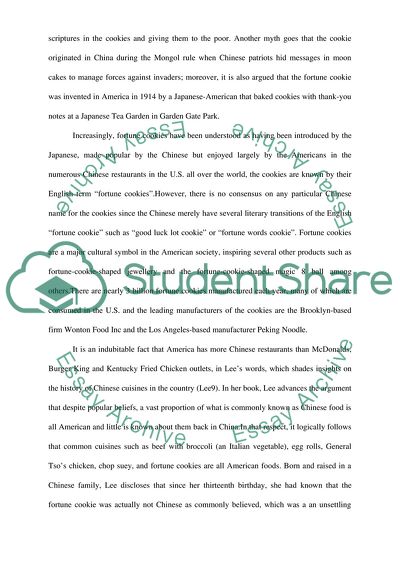Cite this document
(“Origins of the Fortune Cookie Essay Example | Topics and Well Written Essays - 1500 words”, n.d.)
Origins of the Fortune Cookie Essay Example | Topics and Well Written Essays - 1500 words. Retrieved from https://studentshare.org/culture/1646144-fortune-cookie-considered-by-americans-chinese-product-provide-brief-history
Origins of the Fortune Cookie Essay Example | Topics and Well Written Essays - 1500 words. Retrieved from https://studentshare.org/culture/1646144-fortune-cookie-considered-by-americans-chinese-product-provide-brief-history
(Origins of the Fortune Cookie Essay Example | Topics and Well Written Essays - 1500 Words)
Origins of the Fortune Cookie Essay Example | Topics and Well Written Essays - 1500 Words. https://studentshare.org/culture/1646144-fortune-cookie-considered-by-americans-chinese-product-provide-brief-history.
Origins of the Fortune Cookie Essay Example | Topics and Well Written Essays - 1500 Words. https://studentshare.org/culture/1646144-fortune-cookie-considered-by-americans-chinese-product-provide-brief-history.
“Origins of the Fortune Cookie Essay Example | Topics and Well Written Essays - 1500 Words”, n.d. https://studentshare.org/culture/1646144-fortune-cookie-considered-by-americans-chinese-product-provide-brief-history.


